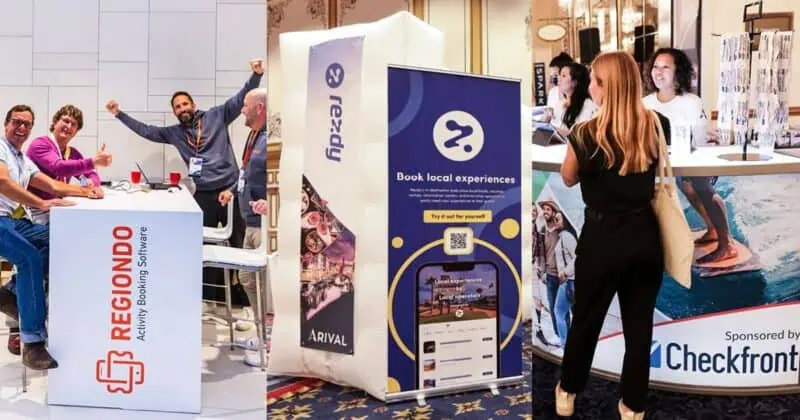Google announced updates to Gemini, their generative AI tool recently, with enhancements to its trip planning capabilities. Travelers can now ask Gemini to help them plan their trips, a related but different approach from a search for “things to do.”
Trip planning tools have been ubiquitous in the travel tech space for years: if you put “trip planning” on your travel conference bingo card it would always be crossed off, joked Emmanuel Marot, Director of Product Management at Google. Marot was on stage at Arival 360 | Berlin in March to discuss how Google is approaching and integrating AI into their search platform.
However, with the importance that Google plays in trip discovery and planning for travelers already — Google is one of the top sources for travelers researching trips, Arival research shows — the search engine giant getting on the AI trip planning tool bandwagon could signal a significant shift in how travelers are researching and planning their trips.
So what are the implications for tour, activity and attraction operators working on improving their websites, search ranking and SEO in order to attract those travelers? In other words, how do you get Gemini on your side?
Ok Google, What’s the Best Tour of Berlin?
Arival CEO Douglas Quinby put Marot — and Gemini — in the hot seat in Berlin to explore how Google’s generative AI determines what to suggest to travelers asking for trip planning recommendations.
Upon asking Google for the “best tour in Berlin,” Gemini responded with a list of ideas, at the top of which was a particular tour from a particular company with a link to book with a particular ticket provider (which was not, by the way, the tour operator’s website but a city pass including the company’s tour).
As Quinby noted, Gemini made a number of judgments along the way, thus guiding the traveler to choose a particular experience and book a particular way. So how does Gemini make those decisions?
Popularity comes into account, Marot answered, explaining that the same parameters that affect your ability (as a tour company) to rank high on Google would affect how Gemini selects one tour over another company’s tour to recommend.
But it’s not only search rankings, he continues, because Gemini is able to go deeper into text. So for example Gemini might look beyond star ratings to notice if people writing about one tour on a review or maybe even a blog are really enthusiastic in the text they write vs. another tour, and use that information as part of its assessment of which tour to recommend.
In the end, though, it’s clear from the conversation that like any human, Gemini is still very much a work in progress.
30 September – 3 October 2025
Insider Pro Access Members Save 20%
THE event of the year for solutions-focused In-Destination Experience creators and sellers
Get Your Spring Savings Ticket Today!
Listen and Learn: More on Google’s Gemini AI and AI in Experiences
The video interview of the From Search to Ask session with Google’s Emmanuel Marot is viewable on-demand for Insider Pro Access members. We’ve also made the full audio clip of the session available to everyone as part of the latest episode of our new podcast, The Voice of Experiences. Listen to the full conversation on Spotify here.
Interested in learning even more about AI and how to make it work for your experience business? Download our Arival Guide to AI in Experiences, available to Insider Pro and Free Access members. Arival Insider Pro Access members can also download a series of case studies that illustrate how a variety of in-destination experiences businesses have used AI successfully in their businesses.
Become an Insider Pro Access member today and get access to the full library of Arival research, plus many other benefits such as free consulting sessions, special discounts and 20% off in-person events, starting from $179 per year.

















